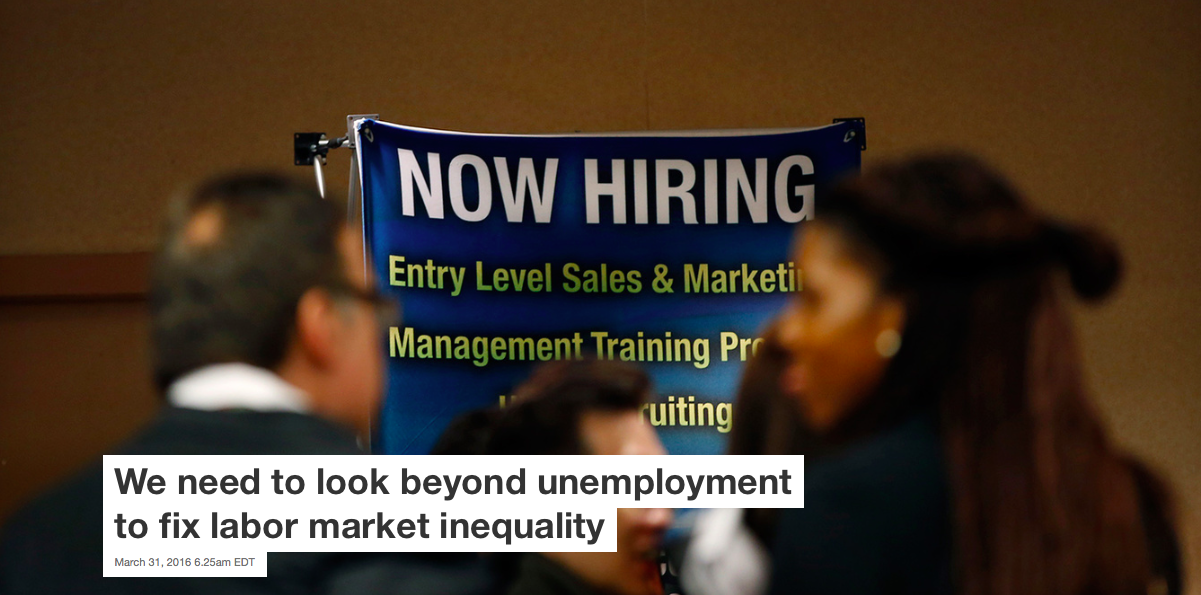

By Nicholas Gruen, Australian National University
The McClure Review of Welfare, much like the Commission of Audit report, is unlikely to win the Abbott government many new fans in the social services sector. However, for those involved in social policy, it is worth noting the interim report’s findings on open data. Both reports offer an insightful way to inform public discussion of social policy while improving its effectiveness.
Opening government data involves making it freely available for use in a machine-readable format and permitting re-use without restrictions. The McClure review’s interim report finds that:
Improving data collection nationally, together with evaluation of services, will assist in designing effective services for disadvantaged groups and targeting those services to those most in need.
The Commission of Audit points out that the failure to publish collected data is:
… hindering insights into whether some of the fastest-growing government programmes are meeting their objectives or being delivered effectively.
Squandering the power of knowledge
Current legislation in Australia greatly restricts the data available for social policy research. While special exemptions allow for the use and disclosure of health information where necessary for some research (into public health, for instance), this does not generally apply for social policy research.
We can study how soft-drink dependence is transmitted between generations more readily than studying the intergenerational transmission of welfare dependence. We can study how someone catches a cold in a way that we can’t study how they lose their job or their family. We can study what causes someone to pass on an illness in a way that we can’t study how they fall into crime.
The Australian Law Reform Commission recognised this when it reviewed privacy legislation. The commission recommended extending public health exemptions to human research more generally. Importantly, technology that allows data to be disaggregated and de-identified exists, ensuring that we also address important privacy concerns.
As Daniel Patrick Moynihan put it so eloquently, everyone is entitled to their own opinion, but not to their own facts. The trouble is there are lots of facts sitting in government data that the public cannot access. Often enough, not even the bureaucrats can.
These facts, were they available to everyone, could help us investigate the effectiveness of programs. They will help us discover what programs work and why, and how to further improve them. And they may also reveal ineffective programs, whereupon we should improve them or change approach.
The pay-off continues for decades
As Professor James Heckman’s work reveals through his analysis of data over numerous interventions, a whole lot of social programs might be justified as forms of redistribution but they were not necessarily efficient – they don’t increase total economic output. By contrast, Heckman shows that well-designed early childhood interventions make huge contributions not just to equity but to the economy more generally.
They are the gift that keeps on giving, rescuing at-risk kids from poor prospects. This pays dividends for decades afterwards in the form of higher employment, higher incomes, better educational outcomes, lower crime and on it goes.
Heckman’s research, among other studies in this field, has helped shape our understanding of the importance of early childhood interventions and improved our ability to make the case for investing in this area.
Open data gives us the tools to do the same kind of investigation in many other areas. It enables the identification of what works and what isn’t working. Both outcomes allow us to continuously improve.
Do we really want ineffective programs to continue? Do we really want to make short-term budgetary savings only to see total costs rise as poor educational, employment and other social outcomes hit the budget balance for decades to come?
Are we to be a dumb or smart country?
Those who do the difficult job of providing social services for little reward or thanks are increasingly evaluating program effectiveness. Their evaluations could be made much easier and cost-effective with greater access to existing data.
Speaking at the recent launch of a report by Lateral Economics, Open For Business: How Open Data Can Help Achieve the G20 Growth Target, Commission of Audit chair Tony Shepherd made some pertinent points on the need for open data. Among them was the fact that a country as sophisticated as Australia should be more advanced in making data available.
As the Commission of Audit notes:
Unlike many other countries, Australia makes relatively little use of its public data resources even though the initial costs of making data available would be low relative to the future flow of benefits … A failure to exploit this evidence would be a missed opportunity given Australia’s demographic and structural budget challenges.
This is why the less sensational recommendations on open data should see the light of day. We need to be driving every effort to improve the evaluation of support services and programs so that we can demonstrate what is working and where it isn’t, fix it.
Making data more available for social policy research is a relatively non-contentious way to improve the effectiveness of social programs. It would have the added benefit of informing the policy debate. We can’t afford not to.
This piece was co-authored by Amanda Robbins, Director of Equity Economics and previously a Treasury official and political adviser.
![]()
Nicholas Gruen is CEO of Lateral Economics and Chairman of the Centre for Social Innovation. This piece was co-authored by Amanda Robbins, a Director of Equity Economics and previously a Treasury official and political adviser.
This article was originally published on The Conversation.
Read the original article.



















